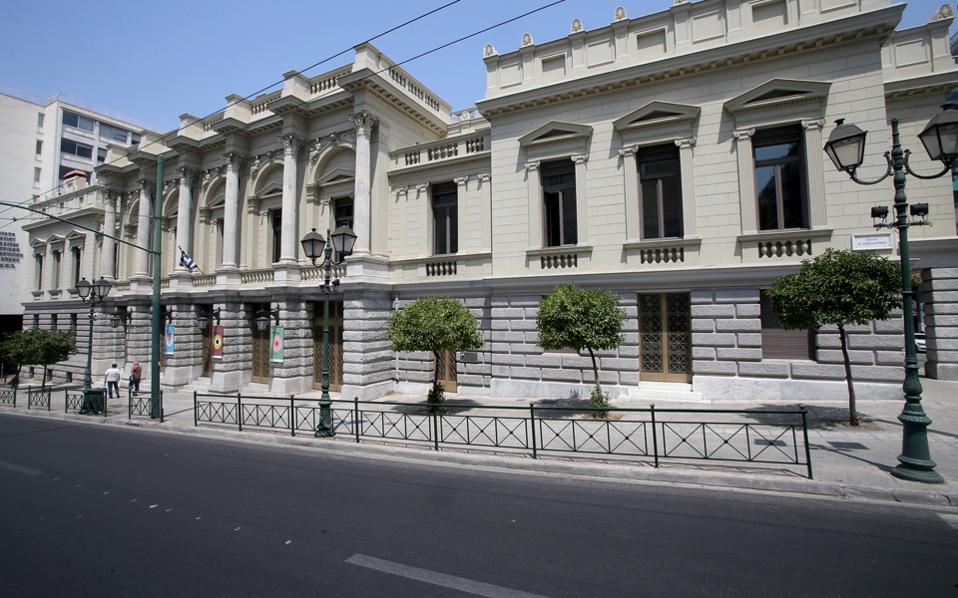New app traces German presence in Greece

Few passers-by rushing along Panepistimiou Street in downtown Athens know that at one time, the old Mavrokefalos Casino at No 64 wasn’t just somewhere punters headed when they were feeling lucky but also a meeting place for high-ranking German occupation officers with their Greek collaborators during the Second World War.
Likewise, Proastiakos suburban railway passengers looking out the window at Rouf station wouldn’t guess that it was here that thousands of Greek Jews and dissidents were forced to board trains headed to the Nazi death camps of Central Europe.
Dozens of locations around the region of Attica that played a part in modern history and Greek-German relations now feature on the German Traces app for smartphones and tablets launched in late December by the Goethe Institute and funded by the German Interior Ministry’s Greek-German Fund for the Future.
The app also goes back to the 19th century, to the age of King Otto and Queen Amalia, as well as Bavarian architect Ernst Ziller, who gave the Greek capital some of its most emblematic buildings. Architecture fans will likely be surprised by the sheer number of buildings Greece owes to Ziller, including the Church of Aghios Loukas on Patission Street, the Megalos Alexandros Hotel on Omonia Square and the Mela Mansion on Kotzia Square, which once housed the Grand Hotel d’Athenes.
The First Cemetery of Athens in the central district of Mets also contains secrets with a German angle. Most Greeks, for example, know of the tragic romance between Mimikos and Mary, the country’s version of Romeo and Juliet, but through the app we learn that this was a Greek-German couple.
Maria Weber was born in Berlin in 1873 and her father was an attendant in the court of Emperor Wilhelm II. She came to Athens in 1891 as a governess for the family of King George. There she fell in love with Greek army surgeon Michalis Mimikos but a series of unfortunate coincidences resulted in the death of the German maiden, whom the Greek press had exalted for her beauty and likened to Goethe’s Gretchen. Her suicide and the ensuing death of her beloved have since taken on the mantle of myth, and a film was even based on the story, but few Greeks are aware of her true identity.
The information on the app has been researched and brought together by the National Research Center (for the 19th century history part) and a team of doctoral students supervised by German historian Hagen Fleischer. Users can use the map or their smartphone camera to navigate, or choose from a list of 60 locations. The details are available in both text and audio. A similar application is also expected to be launched by early March for Thessaloniki, with 40 points of interest, many of which are associated with the persecution of the Jewish population in the northern port city.
The creators of the project had Greeks interested in history and Germans living in Greece in mind when they designed the app.
“The material is in Greek and German, so it is not really aimed at Athens’s other foreign visitors,” says Anna Bairaktari, coordinator of the program.
The purpose of the fund, after all, is to explore Greece and Germany’s joint past and to cultivate stronger ties for the future. Other versions of the Goethe Institute’s app have already been created for other countries, including Israel, Brazil, Ireland and Ukraine and the cities of Bratislava and Stockholm, where they have proved a success, so it was only a matter of time before it came to Greece, where, without any promotion, it has already been downloaded by 360 users.





